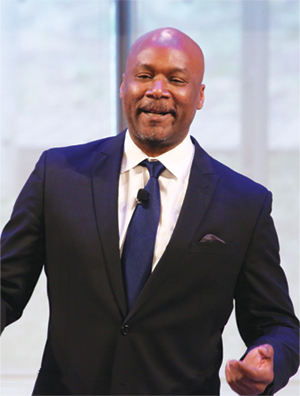| |  |
| | Victor Morrison, chief strategy offi cer and SVP of sales,
Next IT Healthcare said AI is all about using connectivity
and integration to understand user/patient intent. |
| | |
| |  |
| | Alberto Jimenez, OMS and payments leader for IBM Watson Commerce, touched on the role of AI in the business of order management and payments. |
| | |
| |  |
| | Or Shani, CEO & founder, Adgorithms, helped shatter
some myths about AI in the field of marketing. |
| | |